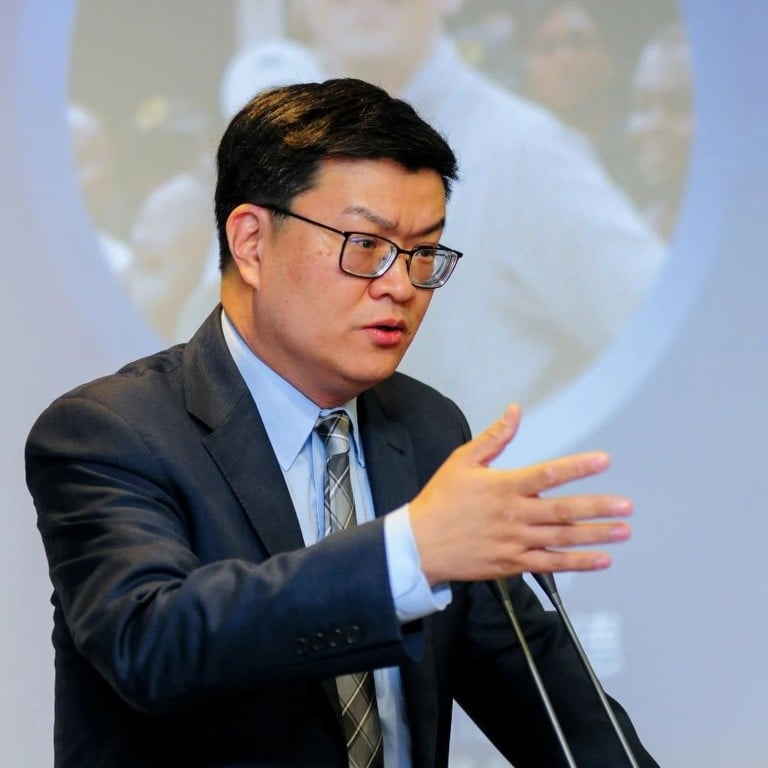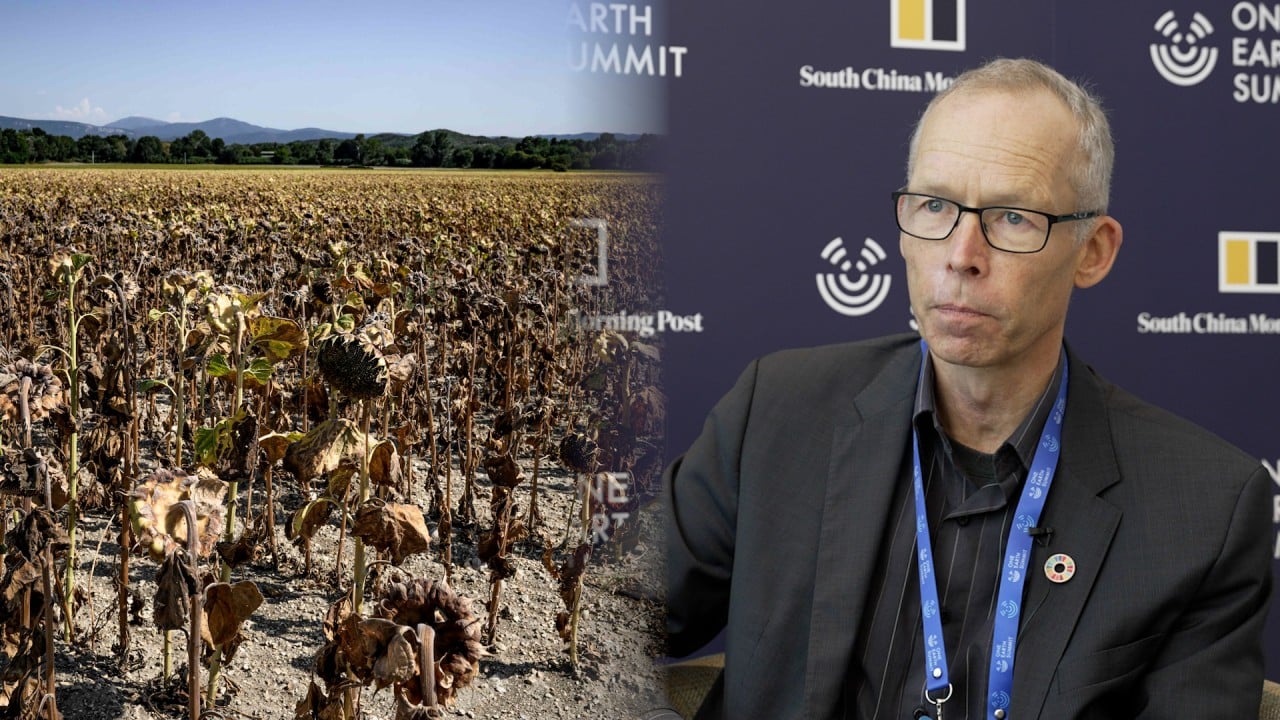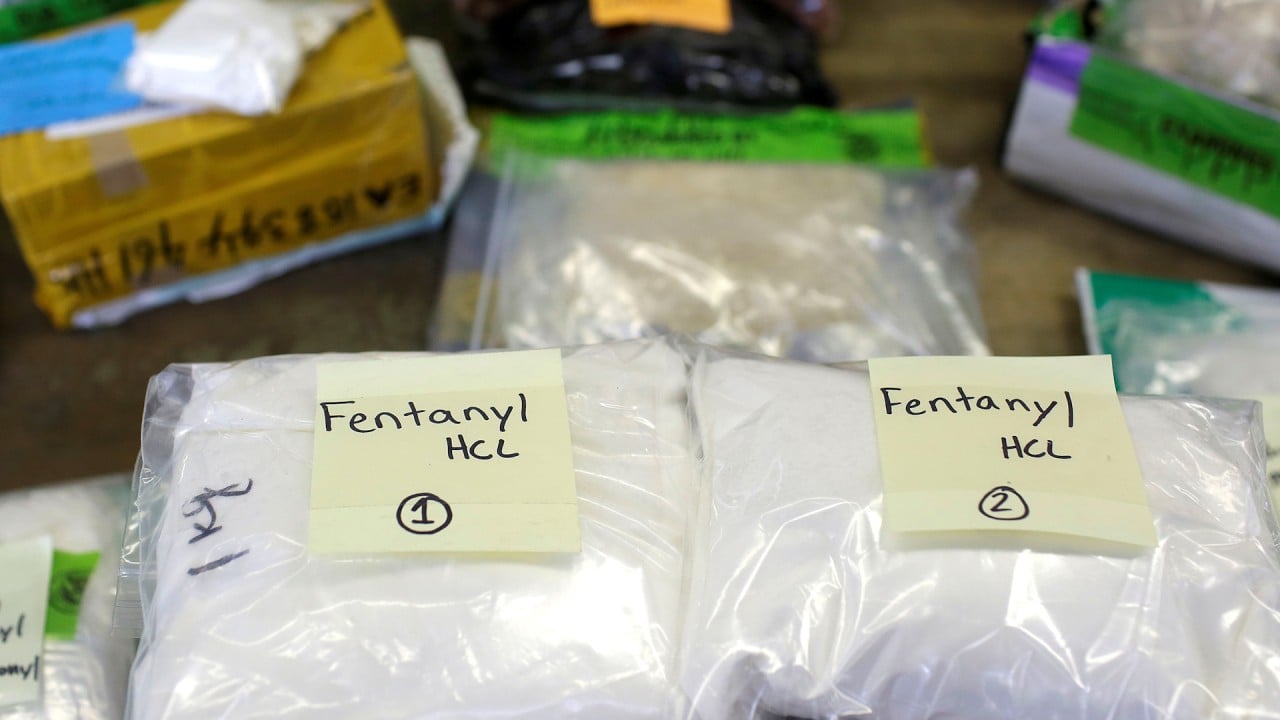
China-US ties: world powers urged to keep ‘finger-pointing and scapegoating’ in check to preserve global stability
- Chinese scholar Da Wei tells Beijing forum recent deterioration in major power relations are ‘very difficult times’
- US view of UN Gaza resolution signals ‘powers are determining the outcome or making the decisions rather than the multilateral institutions’: analyst
Major powers can prevent fraught ties from spiralling if they stop finger-pointing and “scapegoating” one another, a forum in Beijing has heard as diplomatic analysts warned of a “breakdown” of multilateral institutions such as the United Nations.
Da Wei, who heads Tsinghua University’s Centre for International Security and Strategy (CISS), said there had been a deterioration in major power relations – including US-China ties – in what he described as “very difficult times”.
“If we continue to be very angry with each other, if we continue finger-pointing at the other side, if we continue to blame the other side … we will not have stable major power relations,” he said, without naming any country.
“This is something, I think, inevitable,” he said. “If we realise this, we can stop criticising each other, particularly stop blaming the other side for our own country’s domestic problems [and] scapegoating the other side.”
Da was speaking at a panel discussion on major power relations during a conference on Wednesday organised by the CISS.
In his opening comments, Da said political leaders and a political will were key to stabilising relations between world powers.
“We have already seen that,” he said, referring to the meeting between United States President Joe Biden and his Chinese counterpart Xi Jinping in November.
The meeting in California led to the two sides restoring high-level military communications and increased exchanges in some fields, such as economics.
UN Security Council demands immediate ceasefire in Gaza after US abstains
Susan Thornton, a former senior American diplomat, said that to stabilise ties, the US and China needed to not only continue high-level communications but also focus on restarting talks around shared concerns, such as climate change and health.
“I think negotiations are the key to building back some amount of trust between the US and China,” she said, adding that the two countries should also boost connectivity through increased flights and easier visa access.
Ashok Kantha, a former Indian ambassador to China who was on the same panel, argued that the existing international order had broken down and that the world was in search of a “new equilibrium”.
According to Kantha, there is now a transition from a unipolar to multipolar world order, and countries must find a “restructured architecture for global governance” that is more democratic.
“That’s the challenge before us,” he said.
Kantha, who is an honorary fellow at the Institute of Chinese Studies in New Delhi, also argued that while the UN Charter remained relevant, structures in place since the UN was established in 1945 were outdated.
This, he said, was because of a “fundamental shift” in the roles of countries in aspects such as political and economic power, making a more effective and representative architecture necessary.
Calls to reform the UN have grown in recent years, particularly to restructure the Security Council which is made up of five permanent members – Britain, China, France, Russia and the US – representing the victors of the Second World War.
India has long eyed a permanent seat at the table, with support from countries including the US and Russia.
But Thomas Fingar, a fellow at the Freeman Spogli Institute for International Studies at Stanford University, highlighted the difficulties in reforming an institution that had been “terrifically effective”.
While there are 140 more member states in the UN now than when it was formed nearly eight decades ago, Fingar noted there were “vested interests in preserving the existing system”.
“There are countries that have reluctance to embark upon the re-engineering of a system that basically they’ve just figured out,” he said.
Fingar, who previously served in senior roles at the State Department, said the US probably recognised “the need for reform and revitalisation of international institutions”, however “we’re not ready”.
On a separate panel at the forum on Wednesday, Michael Vatikiotis, Asia regional director of the Geneva-based Centre for Humanitarian Dialogue, suggested that the deepening crisis in the Middle East showed there was a “breakdown in the multilateral system”.
“The United States calls it non-binding when in fact it’s international law. International law states that if the Security Council reaches a resolution that it should be complied with,” Vatikiotis said.
“So in fact, we are moving into a situation where the powers are determining the outcome or making the decisions rather than the multilateral institutions, according to a set of rules.”
Beijing slams ‘smear tactics’ in US assessment of China’s ‘predatory’ economy
Richard Sakwa, emeritus professor at the University of Kent, also noted that multilateral institutions – such as the UN and the World Trade Organization – had become “yet another arena of conflict rather than for the resolution of conflict”.
But he stressed that the UN was established on the idea that “humanity can do better” and that countries could work together to solve problems on a multilateral basis.
“Those multilateral institutions are being undermined. That doesn’t mean that we give them up,” Sakwa said.



